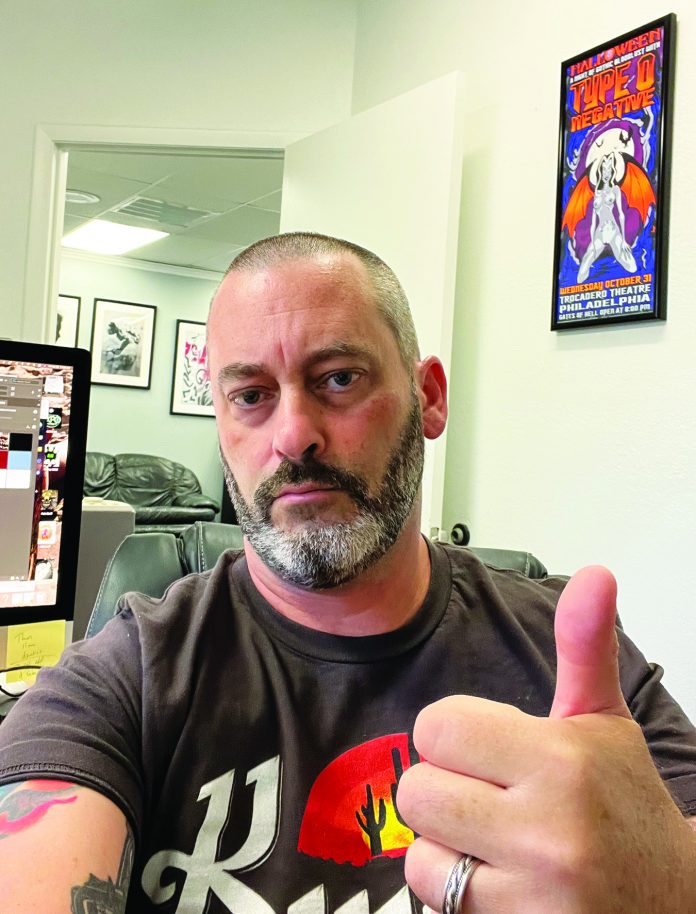(Note: This story appears in the May 2022 issue of ED Magazine)
Back in 1987, all of us die-hard Metallica fans were chomping at the bit for new material on the heels of their magnum opus, “Master of Puppets,” and the untimely death of their bassist Cliff Burton. What we got — on August 21, 1987 — was the “The $5.98 E.P. – Garage Days Re-Revisited.” And yes, I did buy it for $5.98 (plus tax, of course) on that very day. A mere hour later, it was being cranked on a boombox in our locker-room before high school football practice.
“Garage Days,” as it became known by fans, was not new material per se; it boasted a mere five songs, all covers: the Diamond Head song “Helpless,” Holocaust’s “The Small Hours,” Killing Joke’s “The Wait,” a Misfits mashup of “Last Caress” and “Green Hell” and Budgie’s “Crash Course in Brain Surgery,” all with the Metallica spin (they are damn good at covering other bands’ songs).
I was a big fan of “Garage Days,” but I had no clue whatsoever that one day I’d actually experience one of those songs. And yet, on March 21, 2022, I got a “crash course in brain surgery” — quite literally. I was informed by my neurologist that I had a 4 cm by 3 cm tumor on my brain, called a meningioma. It was causing me health issues; specifically, I had lost much of the muscle control of my right leg. I was told in no uncertain terms to go to the hospital as soon as possible.
The next morning I arrived at Tampa General Hospital. Four days later, I was in the operating room having a craniotomy to remove the tumor. The neurosurgeon told me it should be a three-to-five-hour surgery. Instead, it lasted 10 hours.
Four days after the surgery, I was headed home. I was okay; the surgery went well, 96% of the tumor was able to be removed safely (the remaining 4% will be removed via radiation). Except for headaches in the first 48 hours after surgery, I was doing well (a little brain fog from swelling and medication, but otherwise good).
I’m not writing all of this in a Publisher’s Note to mine for sympathy or greeting cards or social media posts (I’ve never even discussed this on social media). I’m writing this to explain how the recovery process changed my outlook on life, and how what I experienced may help me as the Publisher of ED Publications. And I’m writing this because it could maybe help you, too.
Ask yourself these questions: How often do we give ourselves permission to do put aside all responsibilities and just relax? How often do we take an entire day to stay off of social media, our email and our phones?
I tell people that my 10 days recovering from brain surgery almost felt like a vacation and they are incredulous. But it was. I would go outside in the morning, sit by the pool, listen to the splash of the water, smell the fresh air, and just listen to the music that made me feel good. With each passing day I felt as if I was feeding my mind, body and soul with the energy it needed for me to recover. I didn’t have any other responsibilities, other than relaxing, resting and recovering (and returning a few emails here and there, but only after I had been home for a few days).
This was a perfect example of what “self care” truly means. We get so wrapped up in what we “have” to do that we let all of life’s stressors — big, small, and everything in between — dominate our daily lives. We neglect our own health until the point where it makes us unwell, whether that be physical, mental or emotional.
I would never tell anyone how to live. But I do feel strongly that we each deserve a break. I’m not talking about a family vacation, because let’s be honest, family vacations can be just as stressful as work! I’m talking about a break from the things that cause us stress, put us on edge, and make us less effective at our jobs and/or more unhappy at home.
Whatever it is that recharges your batteries and makes you feel good, make sure you do it, at least once in a while. Of all the things I learned from my “crash course in brain surgery,” this is the lesson that will stick.
Dave Manack
Publisher





























